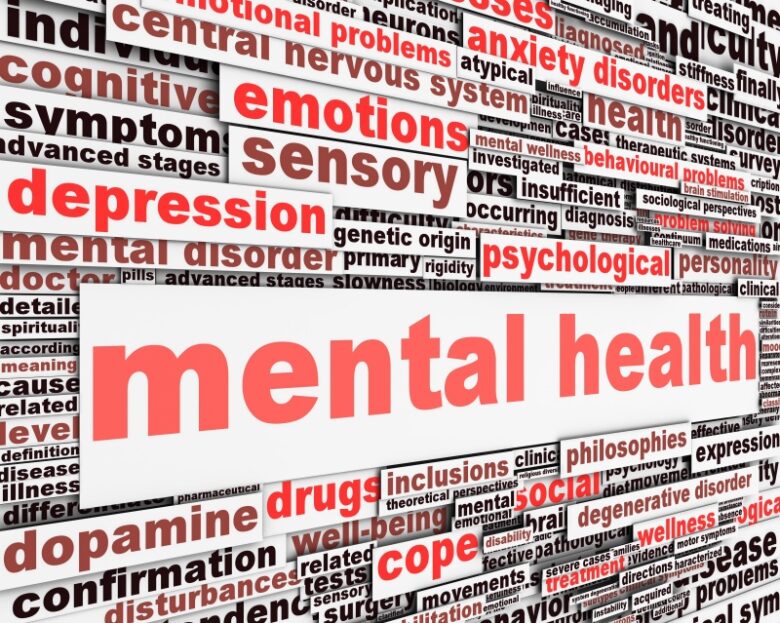Mental health is a general state of well-being in which a person can manage stress, maintain relationships, and exercise good judgement; it is more than just the absence of mental illness. Mental health has become an essential part of maintaining a balanced and fulfilling life in today’s fast-paced society. While many people focus on physical health, mental health is just as important, if not more so. Without mental stability, even the healthiest body will struggle to function properly. Understanding our mental health is essential because it shapes our thoughts, emotions, and daily behaviour. It affects our ability to overcome obstacles, our interactions with others, and our stress levels. In this article, we explore what mental health really means, why it is important, and how to cultivate a good mindset in an often-demanding society.
What is Mental Wellness?
Mental health is the ability to face the highs and lows of life with resilience and clarity. Actively maintaining a sense of well-being is just as important as preventing mental health issues like anxiety or sadness. Good mental health allows people to manage their emotions, cope with stress, and maintain a positive outlook on life. It requires self-awareness, emotional intelligence, and the ability to make and maintain important connections. Genetics, environment, personal experiences, and lifestyle choices all impact mental health in different ways. By making mental health a priority, people can improve their overall quality of life, increase their productivity, and build strong, stimulating social networks.
The Importance of Mental Health
From personal happiness to professional success, mental health is essential to every aspect of life. People who prioritise their mental health report greater emotional stability, less stress, and better connections. It can also improve cognitive skills, allowing people to solve problems more effectively and make better choices. Physical health is closely related to mental health. Physical health problems, such as high blood pressure, heart disease, and impaired immune function, can result from chronic stress and anxiety. In addition, people with poor mental health may have difficulty living a fulfilling life, which can lead to problems such as substance abuse, sleep disorders, and obesity. In order to live a fulfilling life, both mental and physical health care are needed; the two complement each other.
Factors that Influence Mental Health
There are many factors that contribute to a person’s mental health. While environmental variables such as upbringing, social interactions, and life experiences have a significant impact on mental health, genetic factors play a role in determining susceptibility to mental disorders. Overall well-being is greatly influenced by lifestyle decisions, including nutrition, exercise, sleep, and stress management strategies. Relationships, both personal and professional, also affect mental health. While toxic or stressful relationships can be damaging, positive and encouraging relationships can increase emotional resilience. Financial stability and career happiness are other factors that influence mental health; financial stress or job insecurity can cause anxiety and emotional pain. Understanding and acting on these factors can help you maintain healthy mental health.
Ways to Improve Your Mental Health
To improve your mental health, you need to be proactive. Self-care is one of the most effective ways to improve your mental health. This requires getting enough sleep, regular exercise, and a balanced diet. Engaging in fun and relaxing activities, such as hobbies, meditation, or spending time in nature, can also be helpful. Mental health depends on building strong relationships and seeking social support. During difficult times, talking to a trusted friend, family member, or professional counsellor can provide emotional comfort and guidance. Being grateful, maintaining a cheerful attitude, and setting achievable goals can further improve mental health. Effective stress management using strategies such as mindfulness, deep breathing exercises, and therapy can help prevent burnout and mental fatigue. By incorporating these habits into daily life, people can achieve good mental health in the long term.
Roles of Treatment and Professional Support
Seeking professional help should be seen as a step toward improving your mental health, not a sign of weakness. For those struggling with mental health issues, therapy, counselling, and support groups can be a great resource. Professional therapists help people deal with difficult emotions, identify triggers, and develop coping mechanisms. There are a number of therapies that can improve your mental health, including cognitive behavioural therapy (CBT), psychotherapy, and holistic approaches. In severe cases, medications may be prescribed; however, this should always be done under medical supervision. Stigma prevents many people from seeking professional help, but it is essential to overcome these barriers and make your mental health a priority.
The Connection Between Mental Health and Physical Health
Physical health and mental health are closely linked; neglecting one can harm the other. Lack of exercise, poor diet, and inadequate sleep can all contribute to mental health issues such as anxiety and sadness. Conversely, emotional pain and persistent stress can lead to physical health issues, such as impaired immune function, high blood pressure, and gastrointestinal disorders. Regular exercise, a balanced diet, and adequate sleep can significantly improve mental health. Activities such as deep breathing, meditation, and yoga can help reduce stress and promote relaxation. By focusing on both your mental and physical health, you can live a balanced life.
The Impact of Social Media on Mental Health
Social media has become an integral part of everyday life in the digital age, but its impact on mental health raises questions. While social media provides a place for connection and self-expression, it can also lead to low self-esteem, sadness, and anxiety. Constant comparison with others, exposure to unattainable beauty ideals, and cyberbullying can all have a negative impact on mental health. By being careful about your use of social media, you can maintain your mental health. Time limits, a healthy online environment, and real-life socialising can all help offset the negative effects of excessive social media use. Focusing on offline activities and doing a digital detox can also help improve your mental health.
Conclusion
Mental health is a fundamental part of overall health and should not be neglected. It shapes our thoughts, emotions and relationships with the world around us. By prioritising your mental health, you can live a happier and more fulfilling life, build better relationships and be more successful in your personal and professional life. While genetic and environmental factors play a role, maintaining a healthy lifestyle, managing stress and seeking professional help when needed can significantly improve mental health. By reducing the stigma surrounding mental health and encouraging honest discussions, we can help create a more understanding and supportive society. By making a conscious effort to promote our mental health, we can all live a more balanced and healthy life.
FAQs
1. What is a sign of good mental health?
Good mental health is defined by emotional resilience, the ability to cope with stress, healthy relationships, a positive outlook on life and effective problem solving.
2. How can nutrition affect mental health?
A balanced diet rich in nutrients can help improve your mood, reduce stress and boost your brain function. Deficiencies in essential vitamins and minerals can worsen mental health issues.
3. Can exercise improve mental health?
Consistent physical activity can improve your overall mood, reduce stress and release endorphins, so it is a great way to improve your mental health.
4. When should you seek professional help for mental health issues?
If someone is experiencing persistent depression, anxiety or tension that is affecting their daily life, they should seek professional help from a therapist or counsellor.
5. How does social media affect our mental health?
Too much social media can lead to low self-esteem, sadness and worry. By being conscious about it and setting boundaries, you can maintain your mental health.




